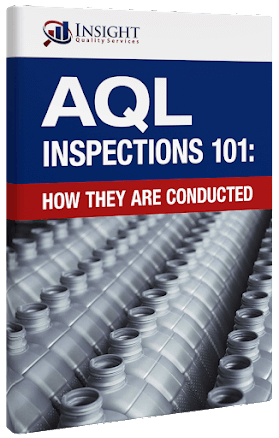Chinese Trading Companies: Are They Really That Bad?



Table of Contents
If you’ve been going through the process of searching for new suppliers, you may have noticed at some point that not all of the companies you find online are factories.
While browsing the Alibaba platform, for example, you may eventually find that there are also a lot of what are called “trading companies.”
What is a trading company?
A trading company does not actually manufacture your product, but they act as a middleman between you (the buyer) and a factory (the seller)
Sometimes it can be hard to tell the difference between a factory and a trading company, as they do not always advertise their status. And some people will tell you that you should never work with a trading company—that you don’t need a middleman between you and the factory—and it’s better to go direct.
We don’t think it’s that clear cut.
There are some cases where it can make sense to work with a trading company and other cases where it doesn’t. It is important to consider the specifics of your situation and whether or not the trading company is adding any value.
Let’s talk a little more about trading companies and how to decide if you should work with one.
Is a Trading Company the Same as a Sourcing Agent?
You may be familiar with the term “sourcing agent,” and it can sometimes be hard to tell the difference between a trading company and a sourcing agent, as the line gets somewhat blurred.
However, in reality, there is a key distinction between a trading company and a sourcing agent. That is, a sourcing agent represents the buyer while a trading company represents the seller.
A trading company will have an established base of suppliers that they work with—and often, they will specialize in specific product categories. For example, they might specialize in pet products and work with different factories that produce toys, apparel, bowls, bedding, and treats.
You won’t find one factory that produces all of these items, but a trading company has the relationships to offer them all.
A sourcing agent, on the other hand, is not tied to any specific set of suppliers and doesn’t usually specialize in a product category. They should be paid by the buyer only and represent your interests.
It’s worth noting, though, that there are unscrupulous sourcing agents out there who will secretly take a commission from the factory. So, you need to be careful in your selection of a sourcing agent. But of course, you need to be careful when vetting any company in China, whether they are a sourcing agent, trading company, or factory.
Again, the line is often blurred and even factories themselves get into the trading business. For example, a CNC machining factory might partner with a plastic injection molding factory to expand the types of services they offer.
When considering a trading company, you should consider the tradeoffs of working with them vs. working with a factory you hire directly or partnering with a sourcing agent.
Is Working With a Trading Company Worth the Cost?
When you work with a trading company, they will generally get paid by adding a markup on top of what the factory charges, increasing the cost of your products.
However, they may get preferential treatment from the factory if they have a longstanding relationship anyway. So, they may actually be able to get better pricing terms than you would if you were a first-time customer of the factory and were doing small volumes.
You’ll want to compare the pricing a trading company offers you to the other options available and determine whether their pricing is significantly higher or not.
Another potential drawback of working with trading companies is that you lose some control over your supply chain. The trading company owns the relationship with the factory which means you have less leverage with them.
Paying a little bit more to a trading company can be beneficial, though.
First of all, they will have deep experience in their product category and that can help make up for any experience that a newer importer might lack and they’ll offer a wide range of products. They can offer convenience to importers who don’t necessarily want to spend too much time finding and qualifying new factories and monitoring production.
Also, a trading company might offer better communication than a factory does, as they are often more skilled at dealing with foreign buyers.
Don’t Just Look at the Label, Look at the Value Proposition
If you need a new supplier, making the best choice comes down to looking at all the options available to you and the combination of cost, quality, and service offered by each.

There are plenty of bad factories, trading companies, and sourcing agents out there.
There are also amazing ones.
That means that if you are considering a trading company, you need to do your due diligence and ask the right questions—questions like:
- What can you tell me about your experience?
- How long have you been in business?
- Do you specialize in any particular product category?
- What is your geographical coverage?
- How are you compensated?
As you are vetting them, ask yourself:
- How well do they communicate?
- Do they seem to be easy to work with?
- Are they transparent in their communication?
- What value do they add?
Trading companies tend to be best for situations where you want to take a hands-off approach and trust someone else to manage a part of your supply chain in exchange for paying more.
Working directly with a factory requires more knowledge about how your products are manufactured and also requires the bandwidth to manage the relationship. But once you have the time, experience, and bandwidth, you may be able to lower your costs significantly by going direct.
If you don’t have much experience working with factories abroad but want to be more hands-on, hiring a sourcing agent can oftentimes be well worth the investment. They can bring knowledge and experience to the table that you don’t yet have and help you manage the process and find the right suppliers.
Aslo, if you are planning to work with a new factory and want to learn more about how to assess their capabilities, we recommend downloading the following guide.
Free Guide
How to Prepare for a Factory Audit
A factory audit helps you assess a supplier’s systems, capacity, workplace environment, or capabilities to ensure they meet your requirements as a buyer.
But which type of audit should you conduct, and which points should you cover on your checklist? In this free guide, you’ll learn how to run an effective supplier assessment.

AQL Inspections 101: How They are Conducted
Authors


